Ehlers-Disaster Syndrome
Crossing the finish line of the 2018 Dwight Crum Pier-to-Pier Swim had become my private obsession. Private because I didn’t think I could do it. My obsession because I wanted it more than anything that summer.
When I returned to serious ocean swimming this year, for the first time in decades, I did not believe my joints would handle it. I expected to quit. But if they did manage, I wanted to finish this race.
Not only did my flimsy body rise to the challenge, I got stronger than I ever had been in my life. How deeply satisfying to take back something I loved from my past, after everything that Ehlers-Danlos has taken from me. Last summer, my summer in Paris was the best summer of my life. This summer of ocean swimming was, too. Another summer in heaven after years and years in hell.
The Dwight Crum Pier-to-Pier is a two mile ocean swim that ends on Manhattan Beach, the beach where years ago I had imagined my suicide, if I could not get some quality of life. I had only wanted to feel a little bit better, so I could live my life a little bit. I never expected to be able to function like I do now. Swimming this race again was beyond anything I ever hoped for, beyond my wildest dreams.
The morning of the 2018 Dwight Crum Pier-to-Pier Swim, I awoke at 5:45 am after an excellent night of sleep.
I was elated. I was ecstatic. I knew I was going to cross the finish line. I was already savoring that moment to come, blinking away my tears of happiness.
But then... Ehlers-Disaster struck.
I am prone to stomach episodes. Very typical Ehlers-Disaster that is. Good digestion takes a harmony of coordination, proper tension in valves and rhythm of muscles of the digestive tract. People like me are flimsy everywhere, throughout skin, tendons, ligaments, blood vessels, arteries, muscles and organs. This seems to confuse the nervous system. Epic malfunctioning results.
That morning was as bad as my stomach disasters ever get. I waited by the restrooms, horrified, distraught and miserable. Drinking bottle after bottle of water, while my stomach did not stop dumping, pouring salt into my mouth, swallowing one potassium pill after another, until I had none left. Doctors have taught me how to replace those electrolytes, what it takes to get through my Ehlers-Disasters.
Start time was approaching.
I was still unrelentingly sick, and horrified that I was going to miss my race. If I went home without swimming, I was going to be really really down. For days. I wouldn’t be able to help it. I wanted to cry right then, but I couldn’t spare the fluid. I was so glad I hadn’t told anyone about this race. I knew there was a big chance Ehlers-Danlos would ruin it for me. Isn’t there always? Less painful to me if no one knows, if I keep my disappointment private.
I thought about my parents.
My father, the ridiculer, who humiliated or attacked us for any problems we had or any of our faults, especially the ones he made up.
My mother, the violent, psychotic borderline, whose greatest thrill in life was ruining my swim meets or anything that mattered to me with one of her deliberately-timed, wildly dramatic two-year-old style temper tantrums. She had her dream life: All the kids she could rage against, with full protection from my father and his family.
A perfect match, they fed off each other. They competed with us, dragged us into their violent fights, tore us down, outright blamed us for their emotional pain, and made us take sides even though they never slept apart. Both of them demanded to be the center of attention, neglected our needs, thrived on our terror and tears, and eventually abandoned us.
(Shudder)
(Shudder to my core)
At least they weren’t ruining this. This couldn’t be helped. I am glad those days are over.
A glance at those memories, and I pulled myself together. That was the only thought that made me feel a little better that morning.
After life with them, I have always been glad to have only Ehlers-Danlos torture me, although intractable PTSD is complete hell. Having lived the unique experience of extreme trauma, violence, neglect, psychological torture and also having a thoroughly disabling untreatable pain disease, I prefer emotional pain over physical, although I am told it is all the same to the brain. EDS is worse, as far as being an impossible problem with unending suffering. But happily, not for me now.
Time ticked by.
Five minutes before the start time, I thought my stomach dumping might be ending. This has happened so many times, I know what that feels like.
What to do?
Is it really over?
Am I dangerously dehydrated?
Can I make it to the starting line?
Am I up for swimming two miles right now? There would be no turning back. I would have to finish swimming. I couldn’t walk far on the sand with my injured foot.
About 30 minutes after a bad stomach episode, I get very nauseous and dysphoric. That will happen out there in the ocean. Can I deal with that?
I feel terrible. I have been up for hours, eaten nothing, am stressed to the limit and already exhausted.
I am not going home without trying.
I will start the race.
In the ocean, I will decide if I can keep going.
If not, head back to shore on the north side of the Hermosa Beach Pier where Mr. Pennington is waiting to dry my tears and take me home.
I wriggled into my wetsuit. Mr. Pennington tugged it up my arms and zipped me up, as fast as we could. I slapped on another layer of sunscreen. I pulled on my cap. I spit in my goggles to keep them from fogging up.
Ready.
I put on my game face. At least I had made it this far. A moment to savor, in spite of everything. At least I was going to start.
Beyond distraught, but looking fabulous in my Lands’ End wetsuit, I waited beside a fierce ten-year-old and my most inspiring friend Angela Lee in the silver sleeveless at right of pic.
Have you seen her documentary? I love it!
Then I realized I had not even looked at the ocean.
Do not get in the ocean without first looking at the ocean!
is what I was taught as a child by the LA County Lifeguards. What were conditions? The surf? Any riptides? The currents? No time to find out now. Who cares anyway, I had bigger problems. More than anything I wished for a packet of sugar to pour on my tongue. Oh well.
Start!
Numb and tired with no adrenaline left, I pathetically plodded into the cold water and into the waves.

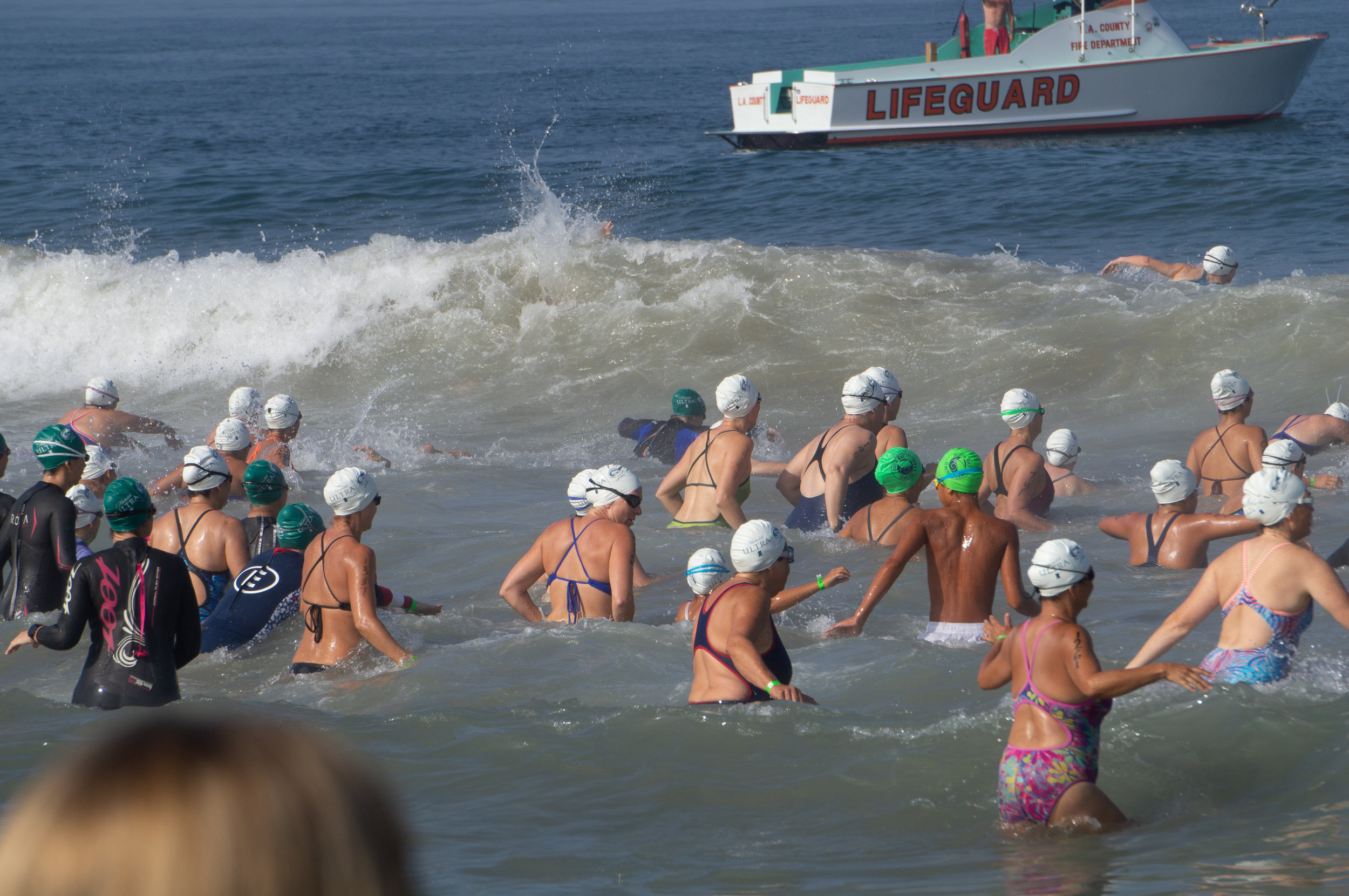
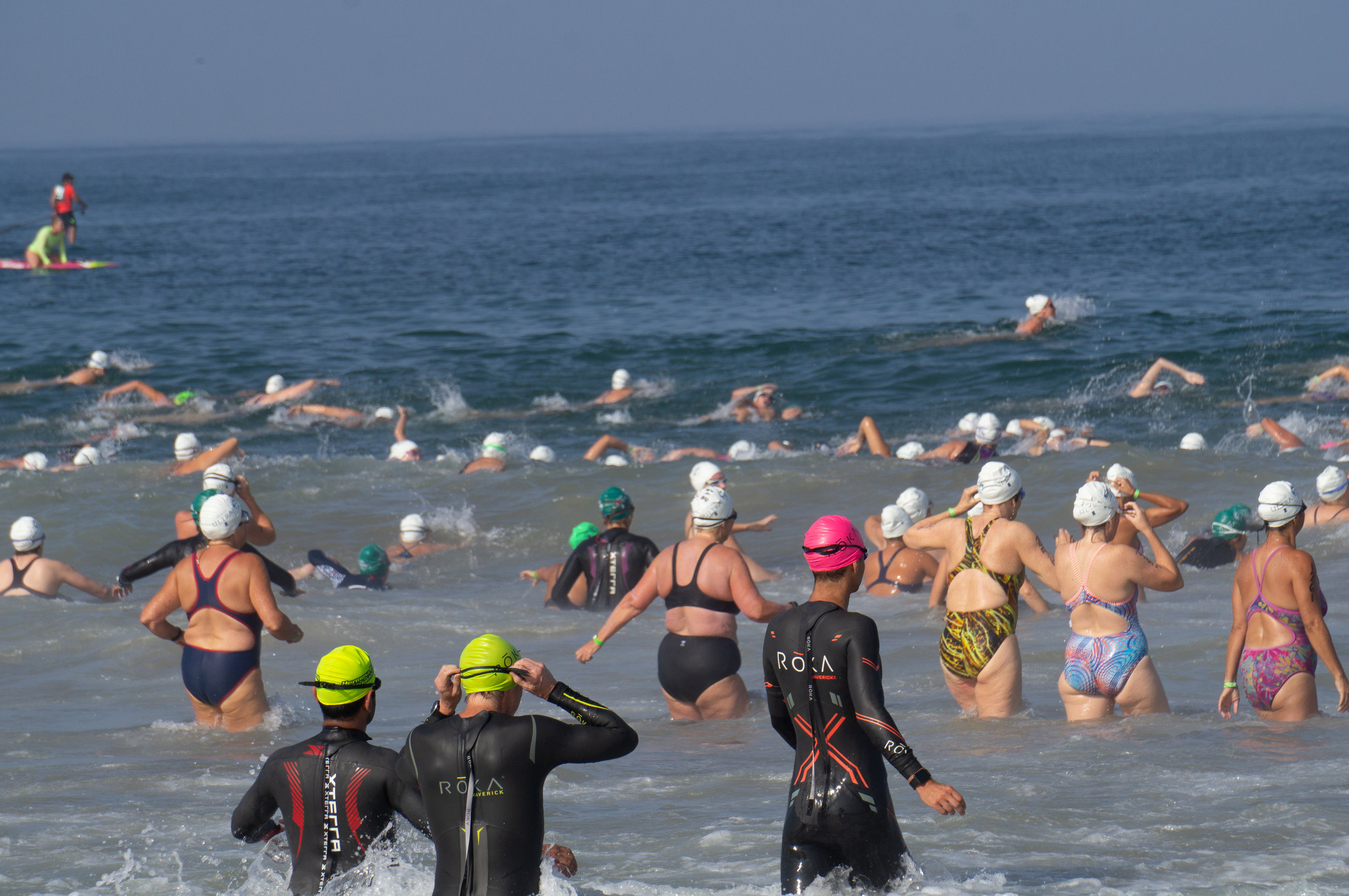
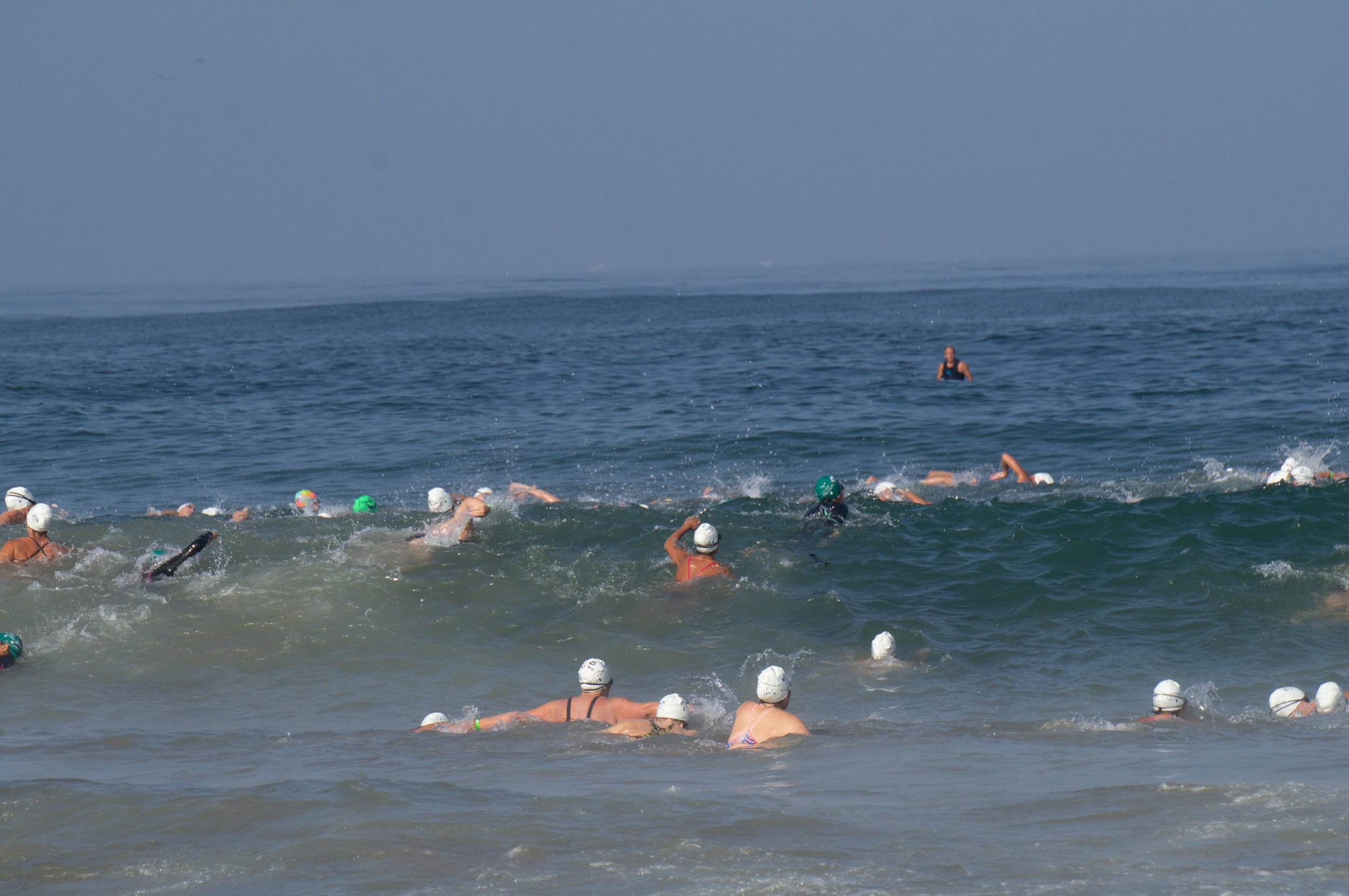
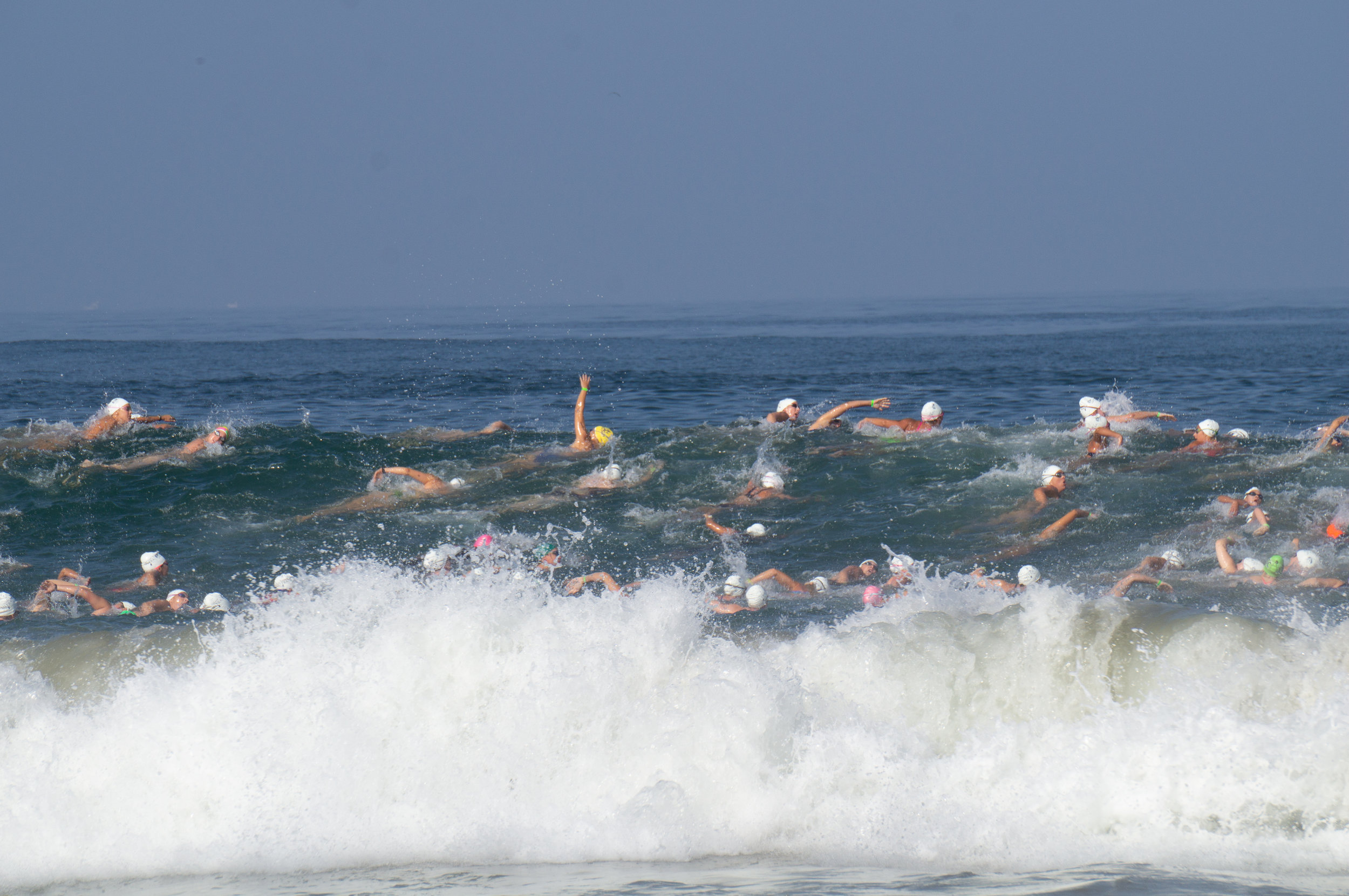
I felt soooooo unbelievably rotten. But then, I always feel wretched at the start of every swim. My muscles clench up as my nervous system fails at coping with the demands of moving all four limbs at once. My blood pressure drops, my heart speeds up, the cold water hurts. My body screams STOP STOP!!
Is this that much different than I usually feel at the start of any swim? Well, yes. But I’m used to feeling awful, so whatever.
The field was crowded. I crashed into flailing arms and legs. Other people crashed into me. Usually this really bothers me. This time, I was too upset, too tired and too sick to care. All I could do was try to make myself swim. One arm overhead, one stroke at a time. How am I feeling?
Rounding the Hermosa Pier, I began to feel better. It seemed my stomach episode really was over. I felt the peace of being in the ocean. I was bewildered, tortured, agonized at almost missing the race, but here I was. I didn’t know if I had 2 miles of swimming in me, but I knew I was strong. I thought I had a shot. I wanted to be here. I wanted to be here in the ocean.
I decided to keep swimming.
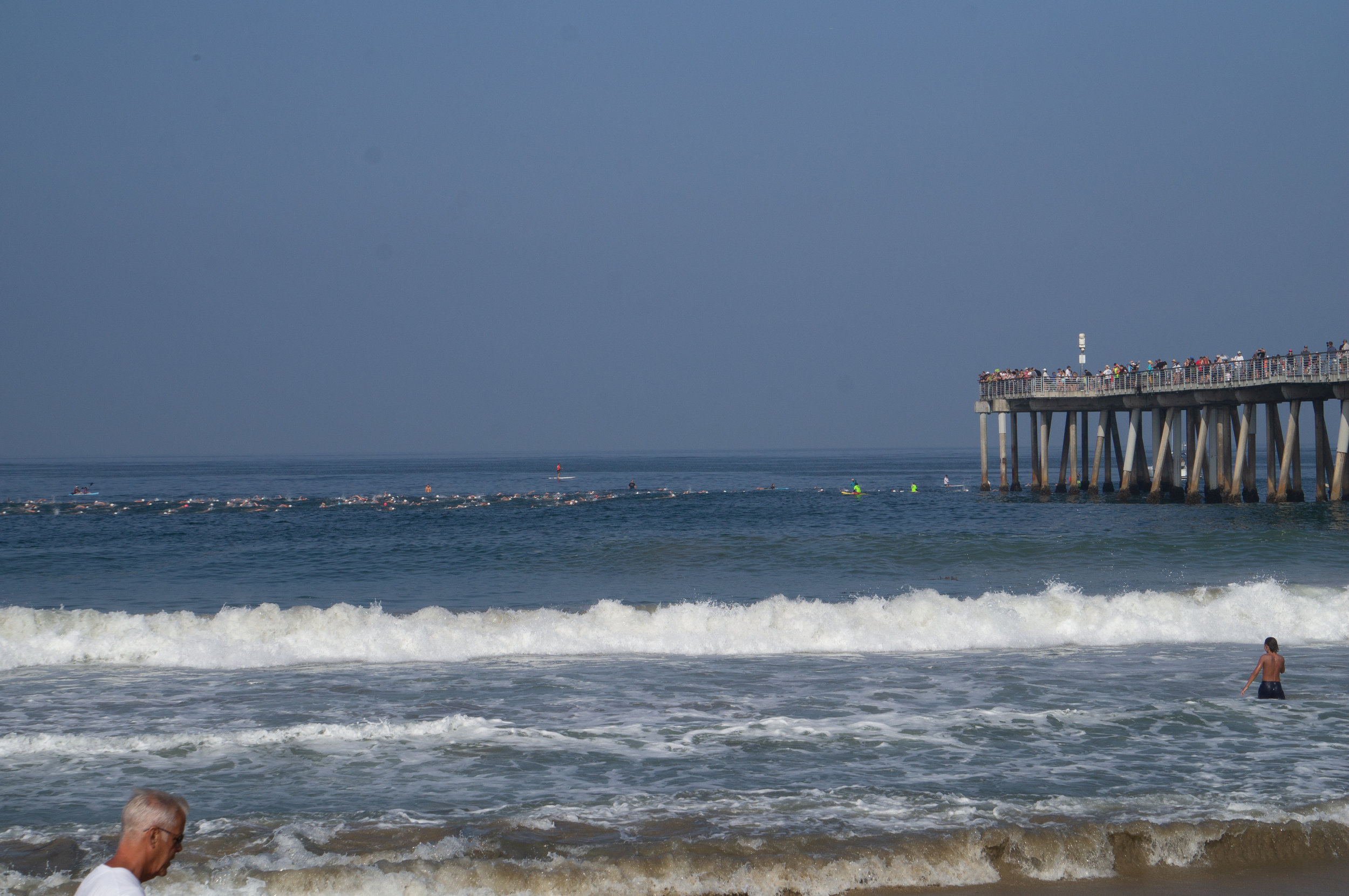
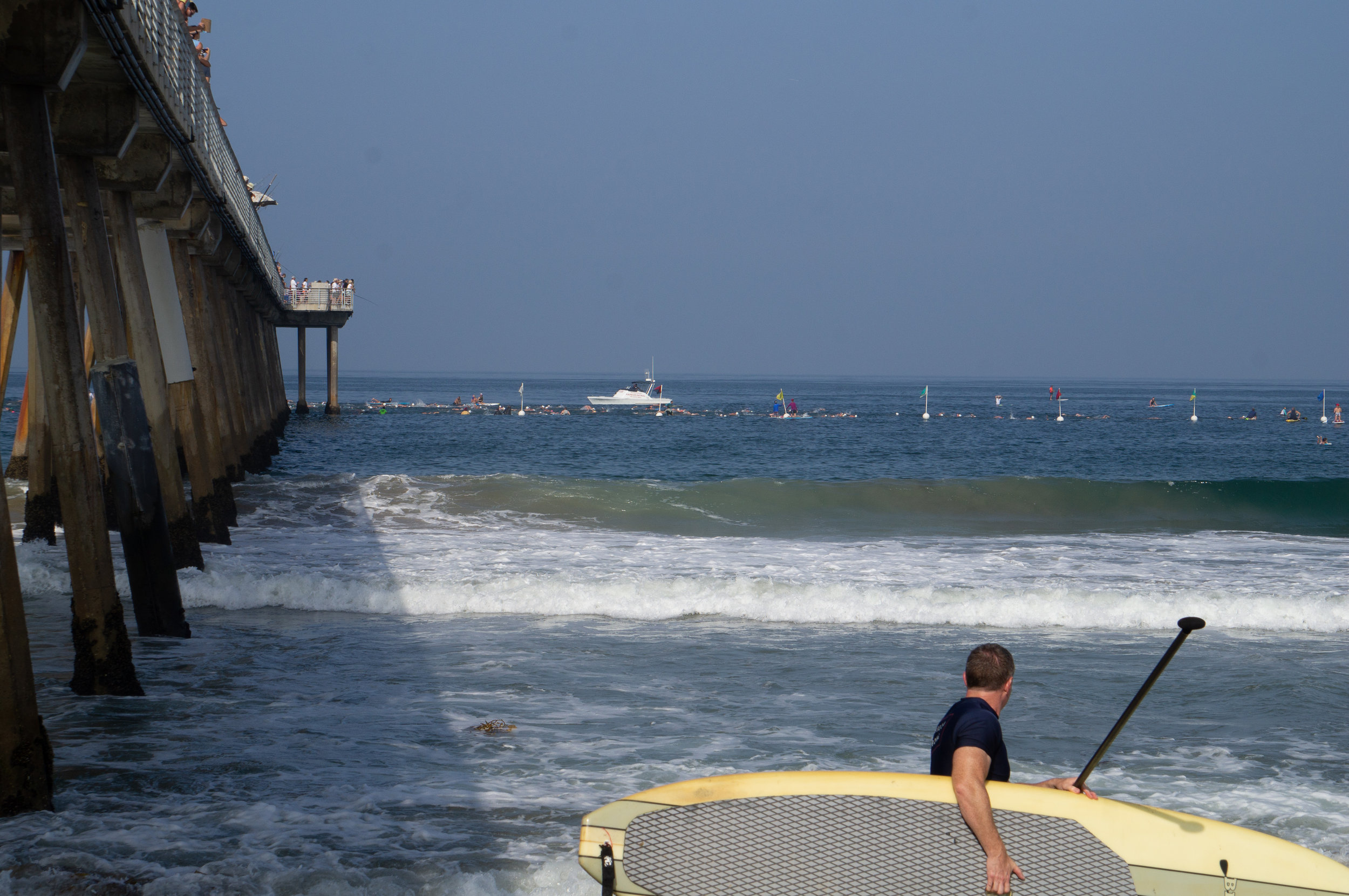
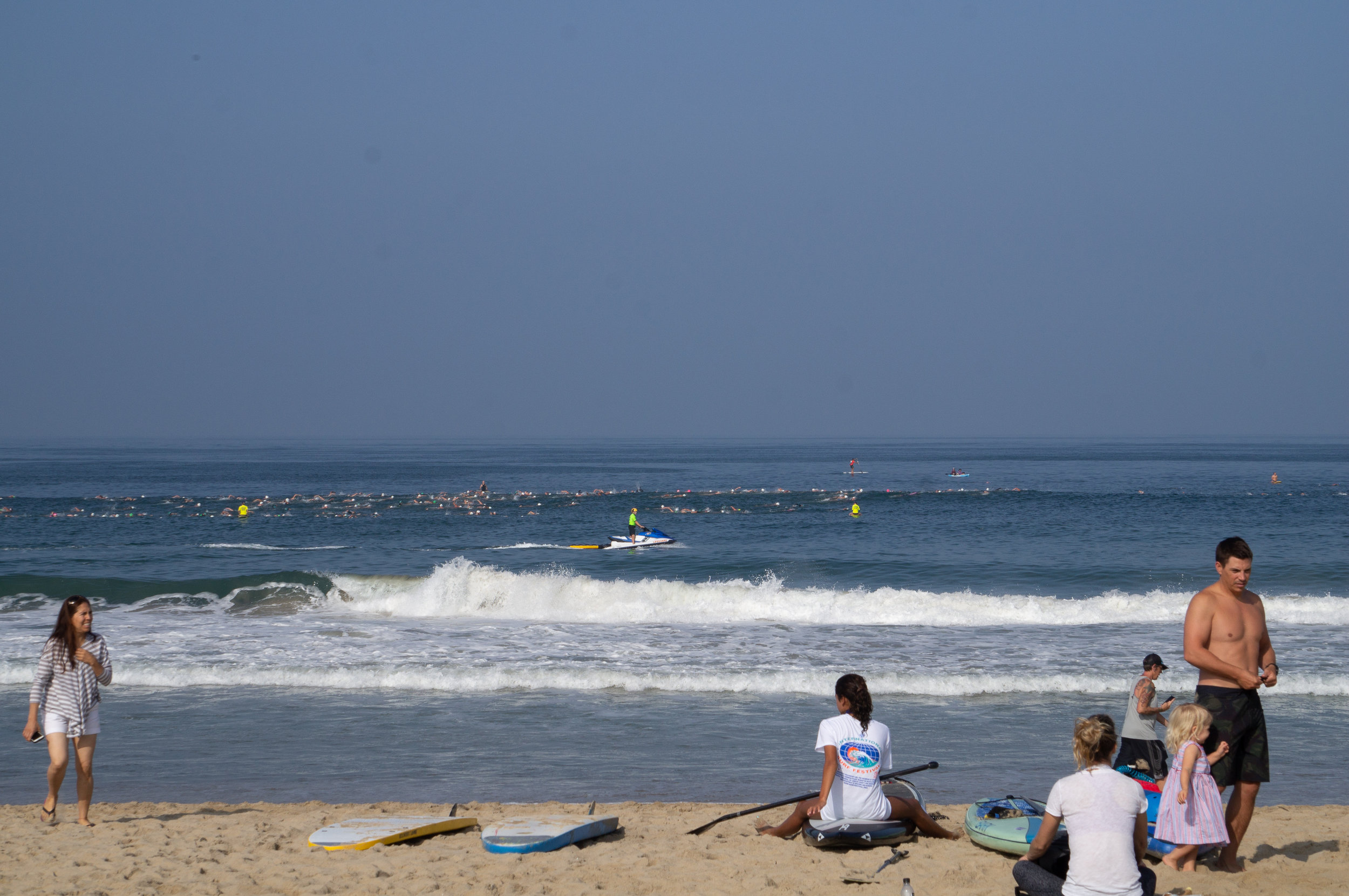
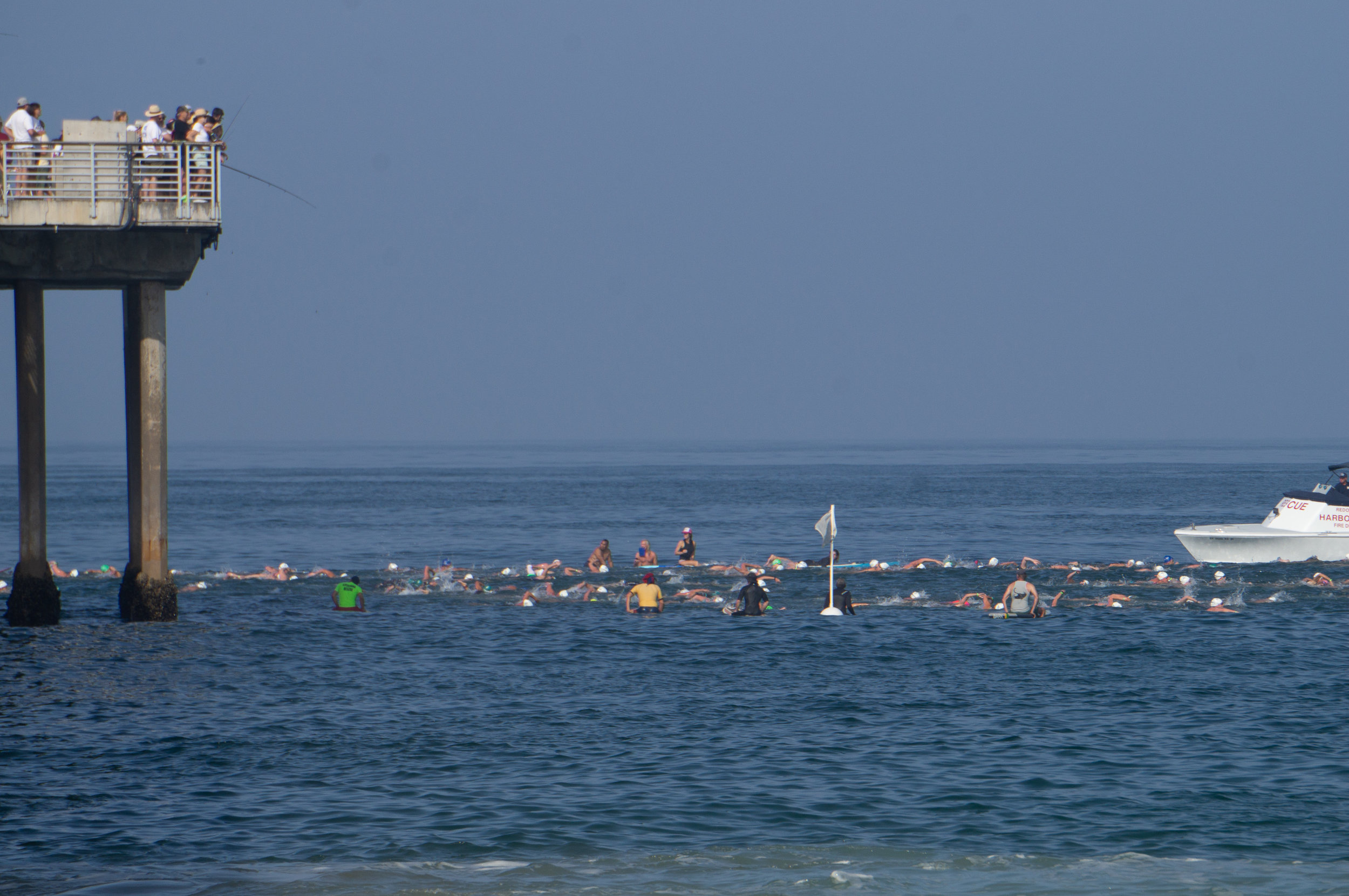
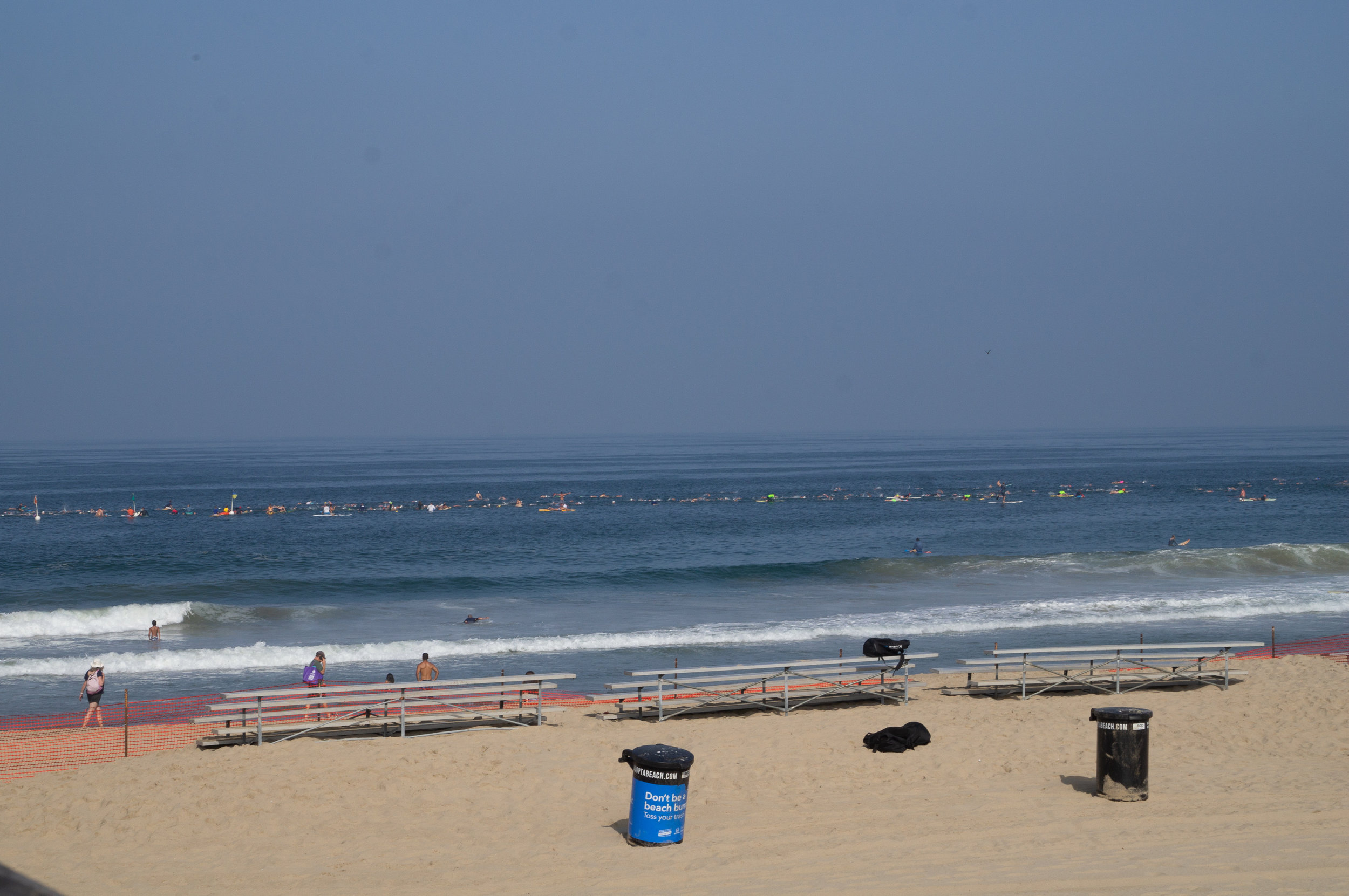
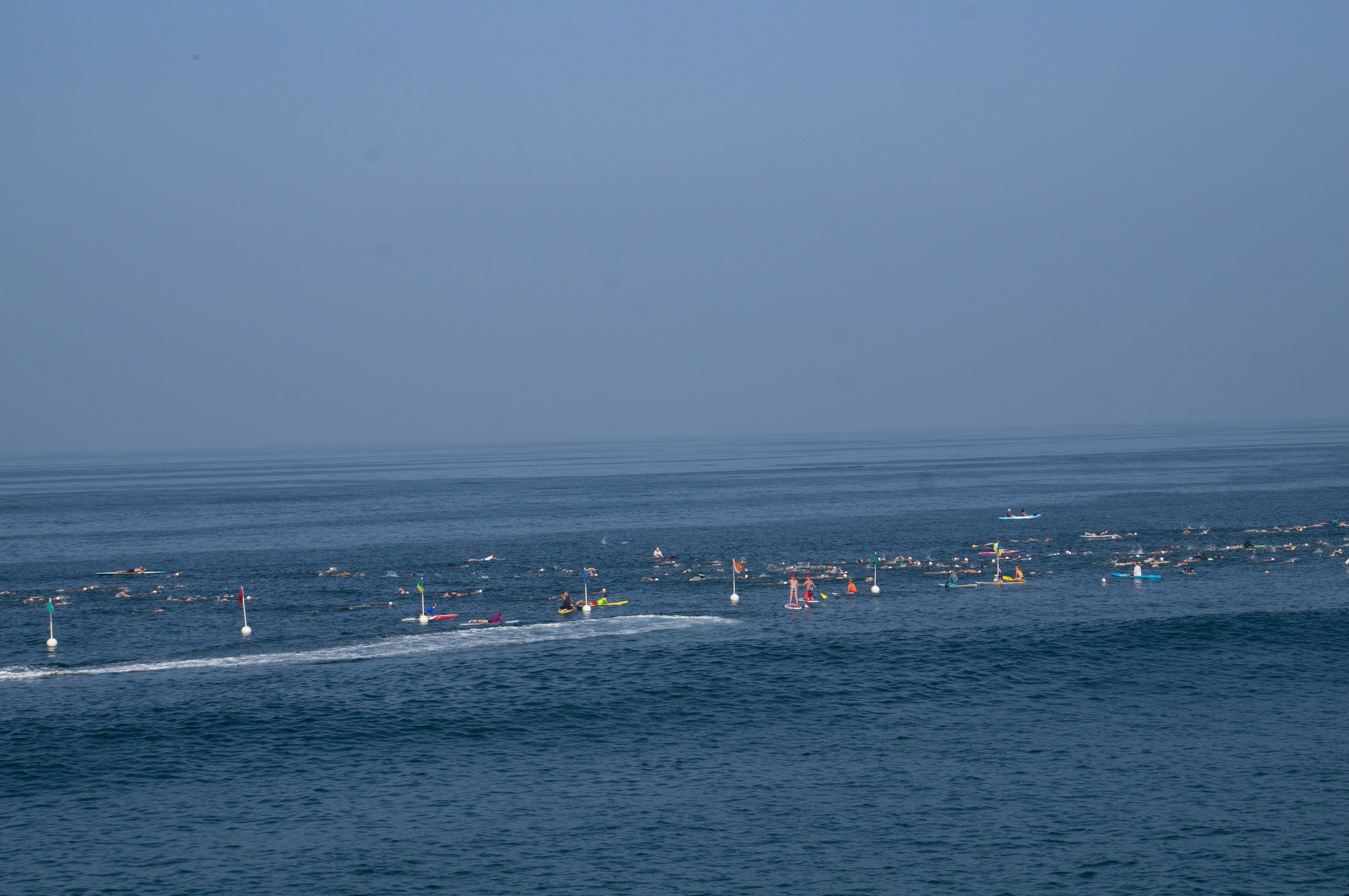
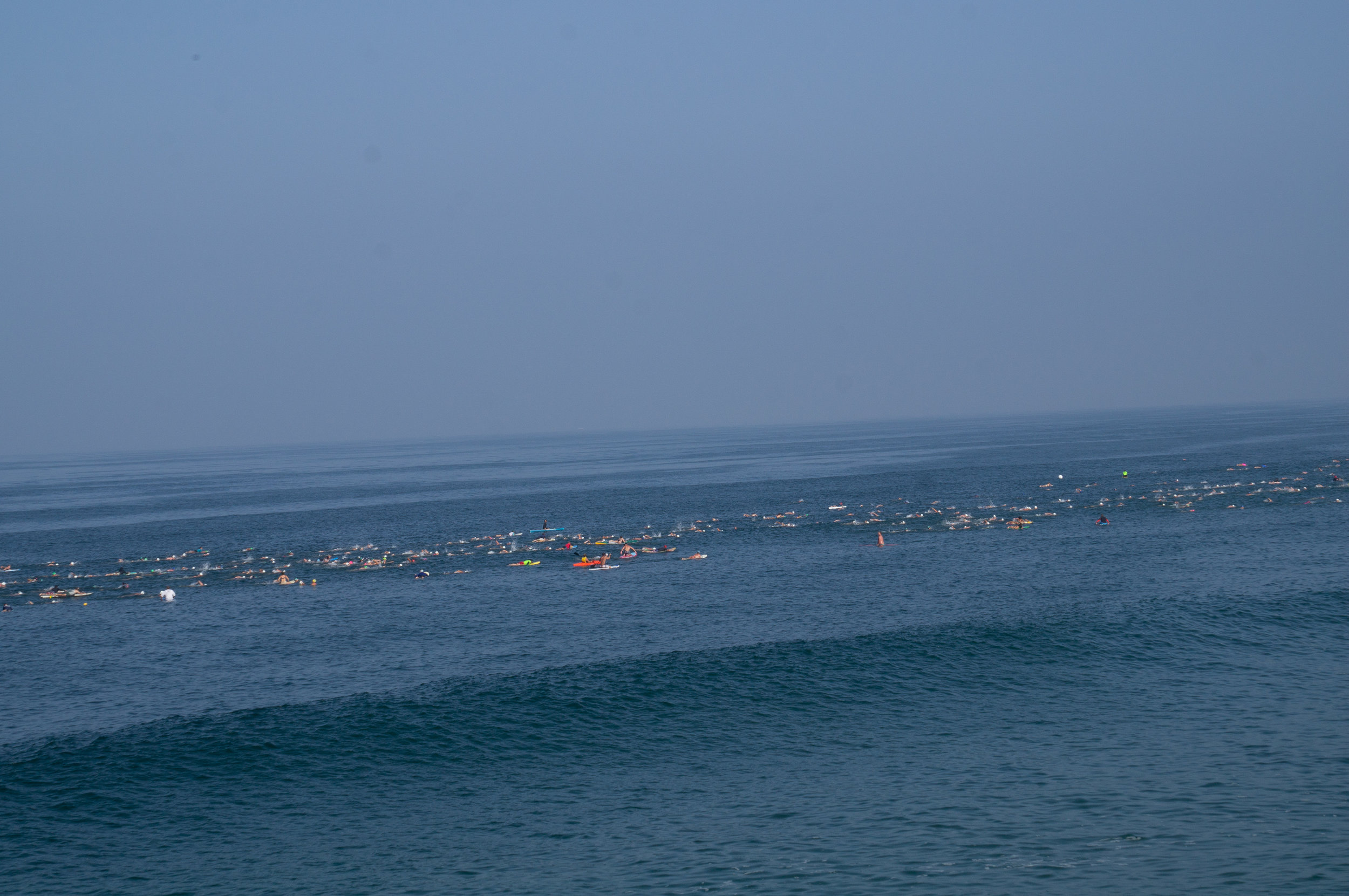
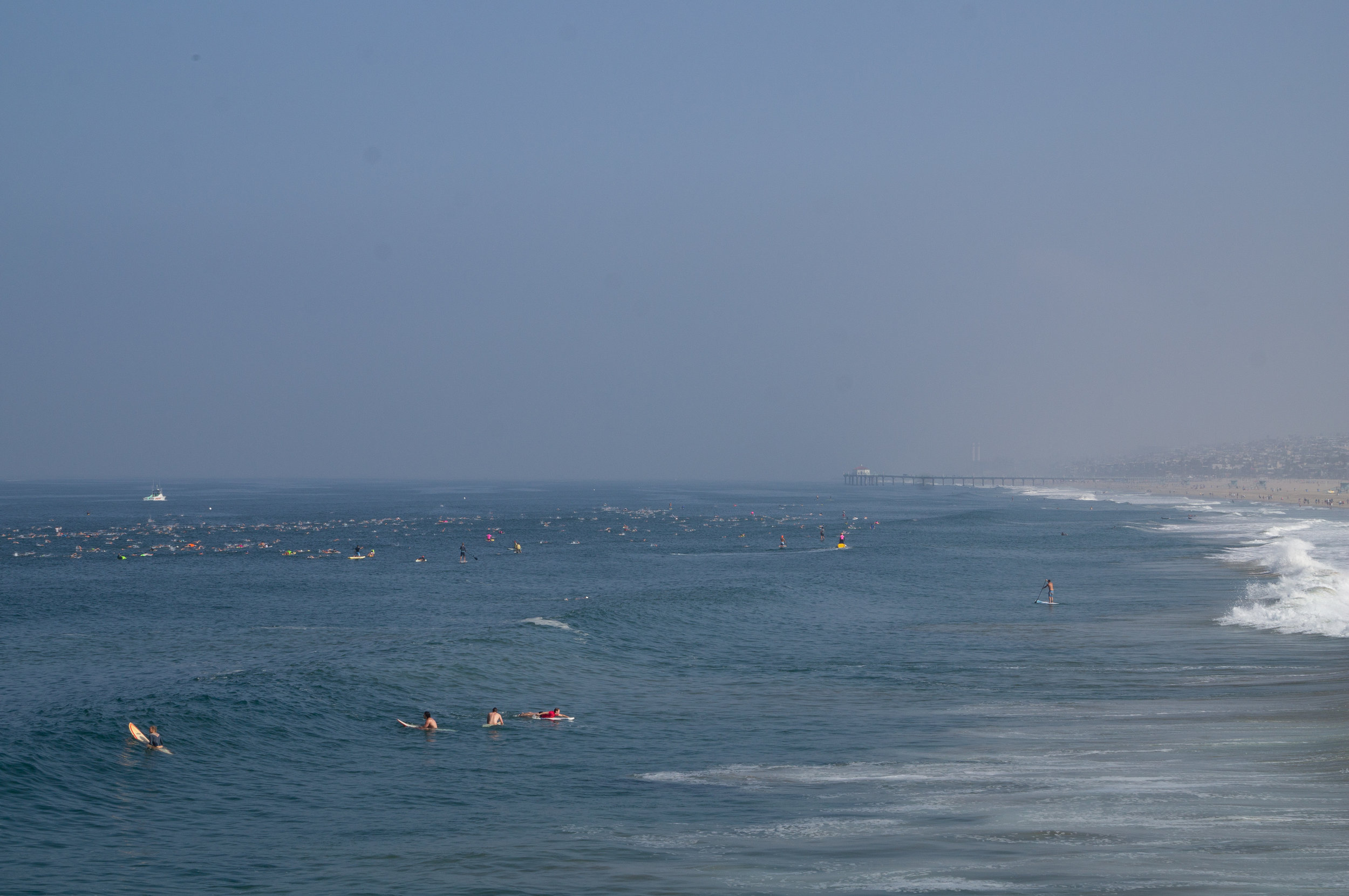
Later, my therapist asked me, as I sat on her living room couch and played with her cats, “Are you angry about your illness? At God? At the universe? At anyone?”
“No,” I said. “Genetic disorders are no one’s fault. There is no one to be angry at.”
“You seem angry. I can feel it,” she said.
“Life is horribly unfair. I’ve had it bad, but many people have had it worse than I. People die sick and alone, never having known anything else. That’s the hard part to reconcile. The suffering of life. Happy endings don’t happen. It’s hard to live with how life doesn’t make any sense and suffering is everywhere.”
“Very true,” she said. “But you seem angry.”
“You may be right. But I cannot feel it.”
Writing this now, reliving the anguish of that day, I do.





